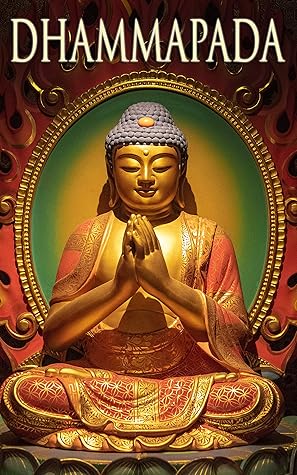More on this book
Community
Kindle Notes & Highlights
As the bee collects nectar and departs without injuring the flower, or its colour or scent, so let a sage dwell in his village.
If a traveller does not meet with one who is his better, or his equal, let him firmly keep to his solitary journey; there is no companionship with a fool.
As long as the evil deed done does not bear fruit, the fool thinks it is like honey; but when it ripens, then the fool suffers grief.
"One is the road that leads to wealth, another the road that leads to Nirvana;" if the Bhikshu, the disciple of Buddha, has learnt this, he will not yearn for honour, he will strive after separation from the world.
His thought is quiet, quiet are his word and deed, when he has obtained freedom by true knowledge, when he has thus become a quiet man.
The man who is free from credulity, but knows the uncreated, who has cut all ties, removed all temptations, renounced all desires, he is the greatest of men.
If a man commits a sin, let him not do it again; let him not delight in sin: pain is the outcome of evil.
If a man does what is good, let him do it again; let him delight in it: happiness is the outcome of good.
Do not speak harshly to anybody; those who are spoken to will answer thee in the same way. Angry speech is painful, blows for blows will touch thee.
By oneself the evil is done, by oneself one suffers; by oneself evil is left undone, by oneself one is purified. Purity and impurity belong to oneself, no one can purify another.
Let no one forget his own duty for the sake of another's, however great; let a man, after he has discerned his own duty, be always attentive to his duty.
He who formerly was reckless and afterwards became sober, brightens up this world, like the moon when freed from clouds.
Not to blame, not to strike, to live restrained under the law, to be moderate in eating, to sleep and sit alone, and to dwell on the highest thoughts—this is the teaching of the Awakened.
he who knows that lusts have a short taste and cause pain, he is wise;
Let us live happily then, not hating those who hate us! among men who hate us let us dwell free from hatred!
Let us live happily then, free from ailments among the ailing! among men who are ailing let us dwell free from ailments!
Victory breeds hatred, for the conquered is unhappy. He who has given up both victory and defeat, he, the contented, is happy.
Let, therefore, no man love anything; loss of the beloved is evil. Those who love nothing and hate nothing, have no fetters.
Let a man overcome anger by love, let him overcome evil by good; let him overcome the greedy by liberality, the liar by truth!
Speak the truth, do not yield to anger; give, if thou art asked for little; by these three steps thou wilt go near the gods.
Those who are ever watchful, who study day and night, and who strive after Nirvana, their passions will come to an end.
There never was, there never will be, nor is there now, a man who is always blamed, or a man who is always praised.
Beware of bodily anger, and control thy body! Leave the sins of the body, and with thy body practise virtue!
Beware of the anger of the tongue, and control thy tongue! Leave the sins of the tongue, and practise virtue with thy tongue!
Beware of the anger of the mind, and control thy mind! Leave the sins of the mind, and pra...
This highlight has been truncated due to consecutive passage length restrictions.
Make thyself an island, work hard, be wise! When thy impurities are blown away, and thou art free from guilt, thou wilt not enter again into birth and decay.
He in whom there is truth, virtue, love, restraint, moderation, he who is free from impurity and is wise, he is called an elder.
The Bhikshu who acts with kindness, who is calm in the doctrine of Buddha, will reach the quiet place (Nirvana), cessation of natural desires, and happiness.
O Bhikshu, empty this boat! if emptied, it will go quickly; having cut off passion and hatred thou wilt go to Nirvana.
Without knowledge there is no meditation, without meditation there is no knowledge: he who has knowledge and meditation is near unto Nirvana.
It advantages a Brahmana not a little if he holds his mind back from the pleasures of life; when all wish to injure has vanished, pain will cease.


